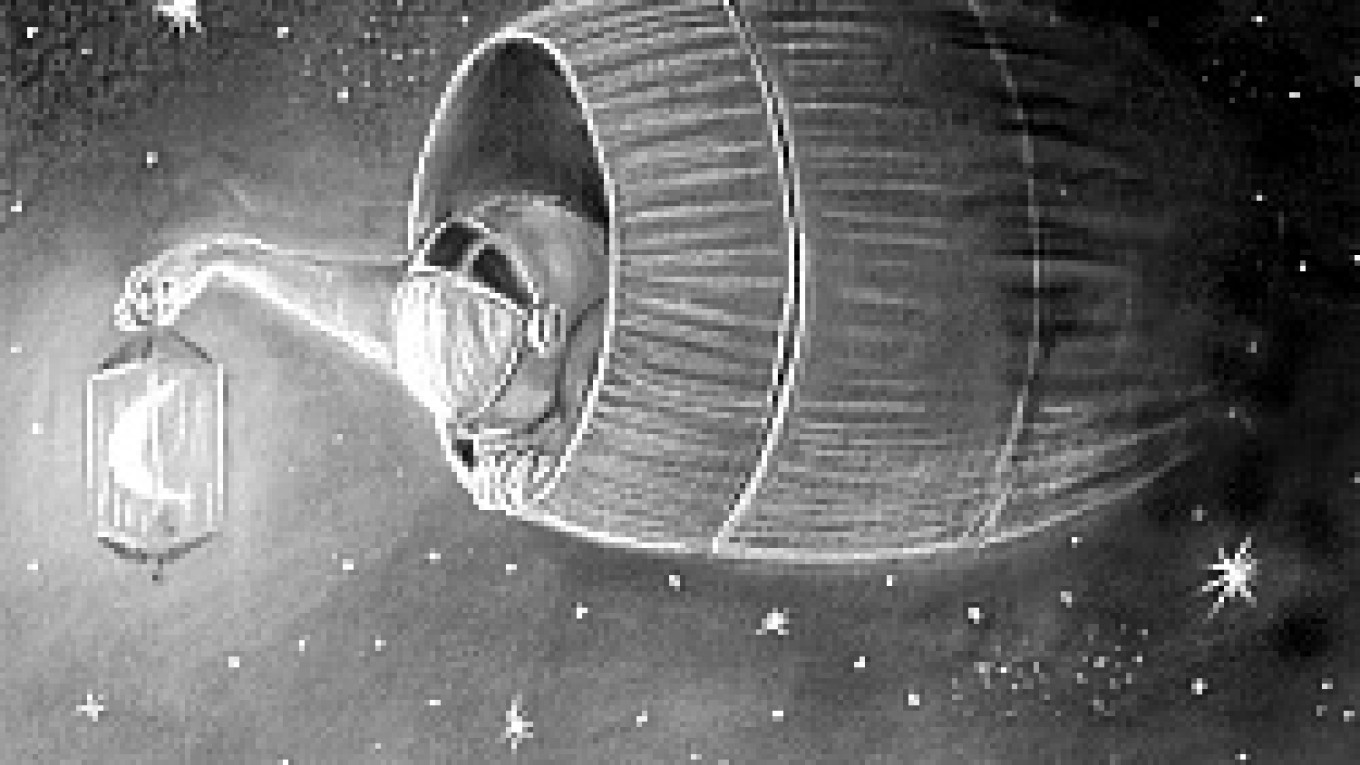| To Our Readers | |
The Moscow Times welcomes letters to the editor. Letters for publication should be signed and bear the signatory's address and telephone number. |
Most people who know of me think of me as an information-technology expert, someone who probably lives in California and invests in edgy Internet startups. In fact, my formal residence is New York, but I am about to spend most of the next five months in Russia, training to be a cosmonaut in Star City, just outside Moscow.
It all came about in a number of ways. First of all, as a kid, I just assumed that I would go to the moon without having to do much in particular to make it happen. I just took it for granted that, by the time I was about 40, space travel would be a common thing. My father was involved with the U.S. space program, and we had some moon rocks at home, so I thought it was no big deal.
Then I got distracted for about 40 years. A few years ago, however, I started paying attention to space again. A lot of people I knew in the IT industry were doing the same: Elon Musk, a co-founder of PayPal, founded Space-X; Jeff Bezos of Amazon started a spacecraft company called Blue Origin; Jeff Greason, a senior manager at Intel, started XCOR Aerospace -- in which I'm an investor.
In 2005, the last year I held my PC Forum conference for IT entrepreneurs, I started a conference called Flight School for entrepreneurs in space and private aviation.
Meanwhile, in about 2005, I was in South Africa with a small group advising former President Thabo Mbeki and his government about its IT policy. One of the group was Mark Shuttleworth, founder of Thawte (sold to VeriSign), who had recently come back from a trip to the space station as the second "space tourist."
One evening, the group sat around a campfire as the sun set, and around 50 African schoolchildren were bussed in. Altogether, there were about 100 of us, Mbeki included, around a roaring fire. Once it was dark, a screen was set up, and Mark showed home videos from space. He gave a fascinating talk about his adventures, complete with clips of him floating around, catching bubbles in his mouth and so on. The kids loved it, and I'm sure some of them decided then and there to study math and science.
Eventually, I invested in Space Adventures, the company that organized Shuttleworth's trip into space. Later, I went on a tour that they organized to watch the launch of Charles Simonyi, the fifth (and soon seventh) space tourist, from Baikonur in Kazakhstan. (Simonyi wrote the Microsoft Word program and now has another startup, Intentional Software, and a foundation, as well as a web site, CharlesinSpace.org.)
Soon after, I started casually discussing the notion of becoming a backup cosmonaut with the Space Adventures team. Yes, I would love to actually go, but the trip to space costs $35 million to $40 million, whereas backup training costs "only" $3 million.
So I had vague thoughts that I might go into space sometime in 2011 -- the year that Google co-founder Sergey Brin is tentatively slated to go. Space Adventures was pushing for 2009, but I was pretty busy.
Then something happened last spring. My sister Emily discovered that she had cancer and had a double mastectomy. (She is doing well now and, in fact, just won a mini-marathon.) A couple of weeks later, I was faced with one of those conflicts: a board meeting here, a conference there, another opportunity at the same time somewhere else. "Aaagh," I thought, "If only I had a double mastectomy. I could cancel all these things, and no one would complain!"
Good grief! I realized my priorities were all out of whack. So in some odd way, this sabbatical in Russia is my alternative to a double mastectomy -- a positive one, to be sure, but the same kind of reset-button experience.
It is also the answer to another question I hear a lot because of my work on human genetics through 23andMe, www.23andme.com, and the Personal Genome Project, www.personalgenome.org: If you learned you had a high chance of developing Alzheimer's in a few years, what would you do?
Why, I'd go train to be a cosmonaut, of course! And why wait to find out that I may get Alzheimer's?
Esther Dyson, chairman of EDventure Holdings, is an active investor in a variety of start-ups around the world. Her interests include information technology, health care and private aviation and space travel. ?© Project Syndicate
A Message from The Moscow Times:
Dear readers,
We are facing unprecedented challenges. Russia's Prosecutor General's Office has designated The Moscow Times as an "undesirable" organization, criminalizing our work and putting our staff at risk of prosecution. This follows our earlier unjust labeling as a "foreign agent."
These actions are direct attempts to silence independent journalism in Russia. The authorities claim our work "discredits the decisions of the Russian leadership." We see things differently: we strive to provide accurate, unbiased reporting on Russia.
We, the journalists of The Moscow Times, refuse to be silenced. But to continue our work, we need your help.
Your support, no matter how small, makes a world of difference. If you can, please support us monthly starting from just $2. It's quick to set up, and every contribution makes a significant impact.
By supporting The Moscow Times, you're defending open, independent journalism in the face of repression. Thank you for standing with us.
Remind me later.


